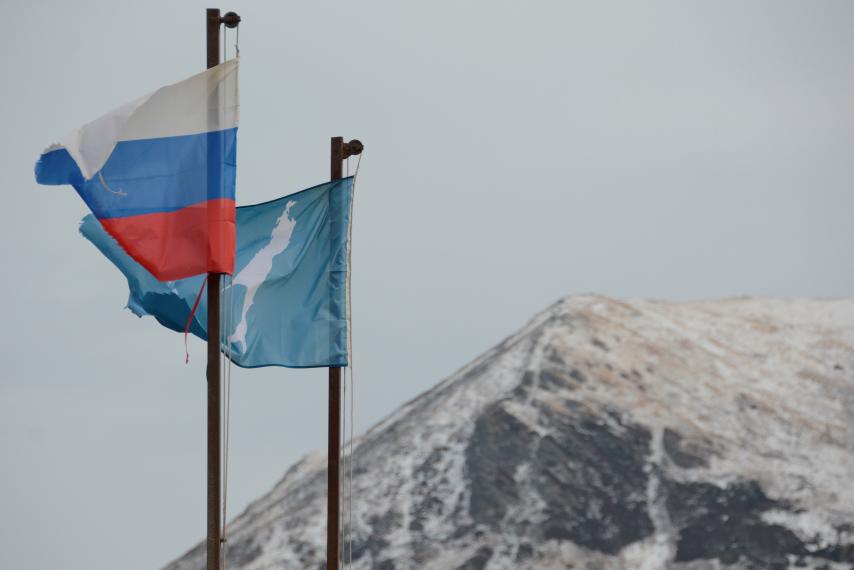
A PERENNIAL ISSUE
Russian-Japanese security meeting to occur today

The Secretary of the Security Council of Russia, Nikolai Patrushev, will meet with Japanese security officials today to coordinate the agenda for a Russian-Japanese conference during this week’s Eastern Economic Forum.
The conference will focus on possible solutions to conflicting claims over the highly contentions Kuril Islands. Located off the northern coast of Japan, the four islands were seized by the Soviet Union after World War II.
The Kurils, which Moscow has recently bolstered militarily, guarantee naval access to the Pacific Ocean and many of its northern trade routes, as well as the islands’ fish and rare earth elements stocks. Fearing they could potentially house American military instalments, Russia is unwilling to cede any of the islands to Japan. Similarly, relinquishing the islands could ignite other territorial disputes with countries like Ukraine.
Japanese PM Shinzo Abe faces similar challenges, as his government, which is struggling with severe unpopularity, is supported by right-wing nationalists, most of whom support the return of all four islands.
All this means neither Mr Abe nor Vladimir Putin can politically afford to budge. Having kept Russia and Japan technically at war for over 60 years, the issue will likely remain frozen for the foreseeable future.
NO REVENGE FOR REGENI
Italian parliament reviews controversial diplomatic decision

Italy’s government will brief the foreign affairs committee today on having sent a new ambassador to Cairo. Rome recalled its previous envoy in April 2016 following the torture and murder of student Giulio Regeni in Egypt amid suspicions Cairo was culpable.
The decision has sparked outrage, especially following reports that the Obama administration gave former Prime Minister Matteo Renzi “explosive intelligence” proving Egyptian security forces were behind the murder. Regeni’s parents called it “a surrender” while a populist MP accused the government of a cover-up. For its part, Rome claims Washington provided no solid evidence.
Rome has a strong economic interest in good ties with its cross-Mediterranean neighbour. Italian oil giant Eni drills for natural gas off Egypt’s coast from a trove worth $6.4 billion to the firm. Such economic motives could feed populist critiques that the government puts profits before people.
With the incumbent Democratic Party facing an uphill battle in next year’s general election, the controversy could further sink its popularity and lower the chances of Mr Renzi, the Democratic leader, making a successful comeback. Though Egyptian relations may warm, Cairo could be dealing with a new government before long.
A NEW RCEPE
ASEAN ministers to negotiate massive trade agreement

The 49th ASEAN Economic Ministers’ Meeting will be held from today until 10 September in the Philippines. The meeting aims to hash out the concluding text of the Regional Comprehensive Economic Partnership (RCEP).
An alternative to the Trans-Pacific Partnership, the RCEP is heavily promoted by China after having previously been cut out of the TPP. The deal includes ASEAN’s ten member states, as well as the six countries with which ASEAN has free trade agreements. The bloc would include almost half of the world’s population and constitute about 40% of the world’s GDP.
The RCEP would lower tariffs, promote movement and lower environmental and labour standards in participating countries to stimulate free trade. Coupled with China’s One Belt, One Road initiative, the deal could pose a massive expansion of Chinese economic influence by enabling Beijing to tap nascent export markets throughout the developing world.
Regardless, various facets of the RCEP, like foreign access to domestic government procurement bids, are still being contended. While such apprehensions are unlikely to be entirely assuaged this week, the final agreement could be signed by the end of this year.
HAPPENING ELSEWHERE…
Putin’s many meetings, Sri Lanka dismisses diplomats

Vladimir Putin will hold marathon bilateral meetings for the second day of the BRICS summit in Xiamen, China. His agenda includes talks with the leaders of Egypt, India, South Africa and Thailand.
Sri Lanka’s president and prime minister will meet with envoys to discuss the closing of several diplomatic missions. Foreign Minister Ravi Karunayake says the closures are part of a shift to a more commercially focused diplomacy.

